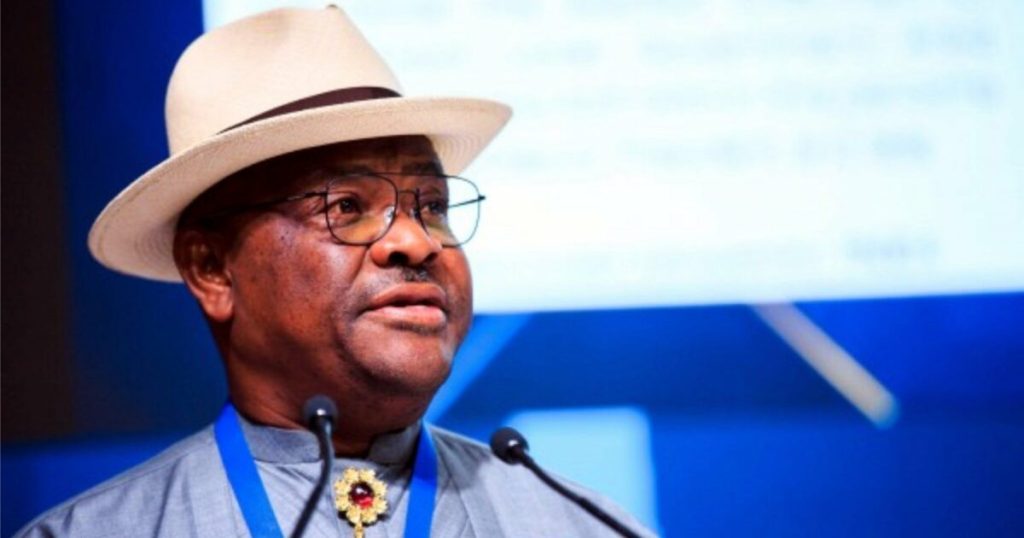Paragraph 1: The Return of Peace and Stability to Rivers State
The political landscape of Rivers State has witnessed a significant shift towards reconciliation and stability following a period of tension and emergency rule. Nyesom Wike, the Minister of the Federal Capital Territory and former governor of Rivers State, confirmed in a televised interview that he had spoken with the incumbent Governor, Siminalayi Fubara, paving the way for the governor’s return to the state after a six-month suspension. Wike emphasized the restoration of peace in Rivers State and the commitment of political actors to maintaining stability. This dialogue between Wike and Fubara marks a crucial step towards healing the political rift that had gripped the state.
Paragraph 2: The Genesis of the Political Crisis and Emergency Rule
The political standoff in Rivers State originated from a prolonged disagreement between Governor Fubara and members of the House of Assembly who were loyal to Nyesom Wike. This internal power struggle escalated to the point where President Bola Tinubu declared a state of emergency in the state on March 18th. The President’s decision involved suspending Governor Fubara, his deputy, Ngozi Odu, and the implicated lawmakers for a period of six months. A sole administrator, Vice Admiral Ibok-Ete Ibas (retd.), was appointed to oversee the state’s affairs during the emergency period. This intervention by the President sparked considerable controversy, with some critics alleging a violation of constitutional provisions, while others defended the move as a necessary measure to restore order.
Paragraph 3: The Road to Reconciliation: Tinubu’s Role and Fubara’s Initiatives
The path towards resolving the political crisis in Rivers State involved significant efforts from various stakeholders. Governor Fubara engaged in direct dialogue with President Tinubu during two private meetings. These discussions were instrumental in bridging the gap between the two leaders and setting the stage for the eventual lifting of the emergency rule. Furthermore, Fubara took the initiative to meet with Nyesom Wike, signaling a willingness to mend their strained relationship. This direct engagement between Fubara and Wike was pivotal in addressing the underlying political tensions that fueled the crisis.
Paragraph 4: Wike’s Confirmation and Emphasis on Unity
Minister Nyesom Wike played a vital role in facilitating the reconciliation process. He publicly confirmed his conversation with Governor Fubara, emphasizing that the focus should be on the restored peace in Rivers State rather than the specifics of who initiated the dialogue. Wike’s statement underscores the importance of prioritizing the state’s stability over personal differences. He commended the Rivers State House of Assembly for contributing to the reconciliation efforts, highlighting the collective desire to move forward in the interest of the state.
Paragraph 5: Tinubu’s Decision to Lift Emergency Rule and Restore Governance
President Tinubu’s decision to lift the state of emergency on September 13th marked a significant turning point in the political saga of Rivers State. This decision signaled the President’s confidence in the progress made towards restoring stability and allowed for the reinstatement of Governor Fubara, his deputy, and the lawmakers. The return to regular governance is expected to facilitate the smooth functioning of the state’s administrative machinery and enable a focus on addressing the needs of the people.
Paragraph 6: Looking Ahead: The Future of Rivers State Politics
The resolution of the political crisis in Rivers State presents an opportunity for a fresh start and a renewed focus on development and governance. The emphasis on reconciliation and unity among key political actors sets the stage for a more stable and collaborative political environment. The challenges that lie ahead include rebuilding trust among different factions, addressing the underlying issues that led to the crisis, and ensuring that the lessons learned from this experience contribute to a more resilient and inclusive political system in Rivers State. The focus now shifts towards collaborative governance, economic progress, and delivering tangible benefits to the citizens of Rivers State.


